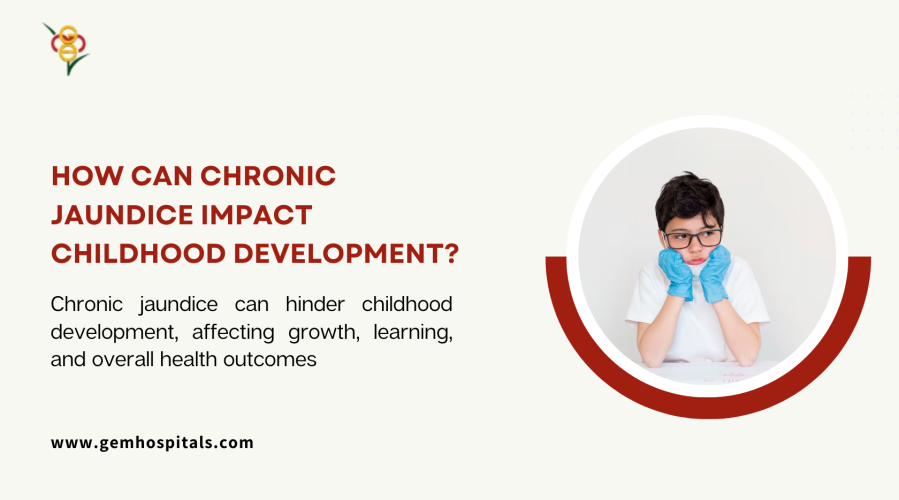Learn what gallstones are, their common symptoms, causes, and treatment options. Discover when to seek medical care and how to manage gallstone complications effectively.
How Can Chronic Jaundice Impact Childhood Development?

Chronic jaundice is a long-standing disease that is characterized by the dysfunction of the liver in relation to bilirubin and giving skin and eyes a yellowish hue. Jaundice is more prevalent among babies, and the condition usually clears up soon, but when it persists, it can have serious consequences that may be felt in childhood. This paper aims at providing a comprehensive overview of how chronic jaundice impacts development in order to ensure early detection as well as appropriate management.
The Importance of Early Diagnosis
Chronic jaundice is best handled when diagnosed early. Failure to diagnose results in the worsening of symptoms and possible complications including; cognitive disorders and developmental problems. In diagnosing jaundice, doctors can use various diagnostic tools which include blood tests, imaging, and liver function assessment to determine the stage of the disease as well as its causes.
In children, chronic or frequently occurring jaundice may be an indication of liver or blood abnormalities. If unaddressed, such illnesses can slow growth, compromise motor function, and in some cases, learning capabilities. For instance, children may develop fatigue, reduced energy and poor feeding which in turn slows their physical and mental development.
Long-Term Effects of Chronic Jaundice on Development
This means that children who suffer from chronic jaundice are likely to experience some form of developmental problems. Some of the most dangerous effects include growth retardation. Because the liver is involved in metabolism of nutrients, any disturbance in the activity of the liver impacts nutrient metabolism and may result in malnutrition.
The other effect of chronic jaundice is that it can cause stress to the child’s brain. If not controlled, the bilirubin accumulates in the brain and may cause a condition referred to as kernicterus. This severe disorder of the nervous system may lead to hearing impairment, motor dysfunction, and learning disorders. It stresses on early diagnosis and treatment.
Managing Chronic Jaundice and Developmental Concerns
Parents with children that have chronic jaundice should consult their doctors frequently to observe the progress of their child. The follow-ups, blood tests, and the employment of specific diagnostic tools for jaundice aid in monitoring the liver and bilirubin. If medication, changes in lifestyle or, in some cases, surgery is initiated early enough, the chances are improved greatly.
When to Seek Help
If your child has been diagnosed of having jaundice and symptoms persist beyond the newborn stage, it is advisable to seek the services of a specialist. Thus, a condition that lasts for a few weeks can be a sign of serious complications such as liver disease or metabolic disorders. Such conditions demand appropriate medical intervention, and the sooner it is initiated, the more favorable the child’s development.
Conclusion
Inability to manage chronic jaundice in children can have severe implications for the child's development. Most of the long-term effects can be prevented if the condition is detected early and necessary treatment is administered. The best way to diagnose jaundice and give children the best future they deserve is by using the most sophisticated diagnostic tools. At Gem Hospital, we ensure that we provide excellent health care services to children with chronic jaundice. Book an appointment today and let our professional staff explain the treatment process to you.
Blogs & Article
Learn about bloating and gas problems, including common causes, symptoms, and effective solutions to improve digestion, reduce discomfort, and maintain gut health.
Learn how unverified Ayurveda treatments may cause liver damage, understand the risks, symptoms, and why medical guidance is essential for safe care.


